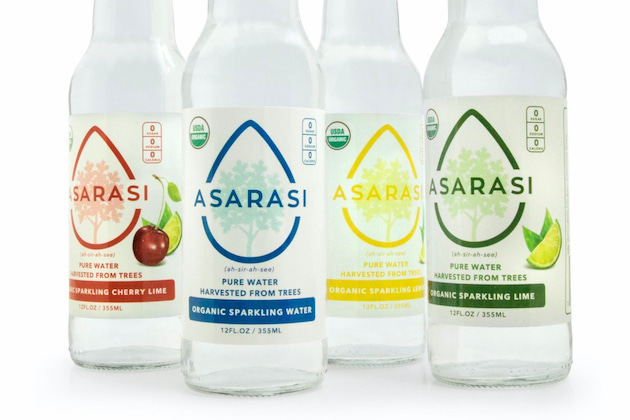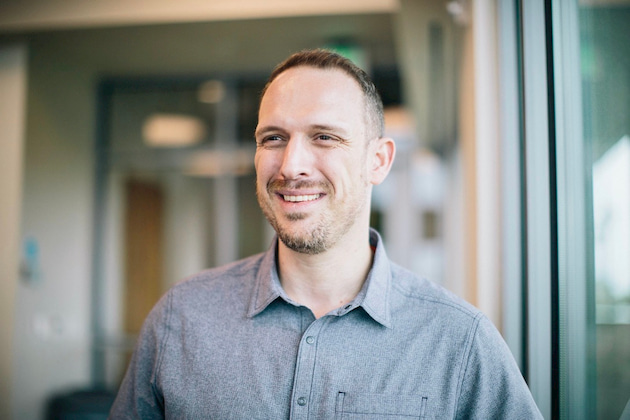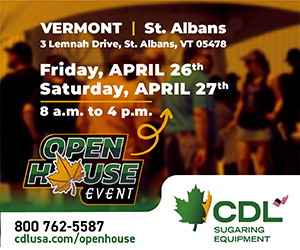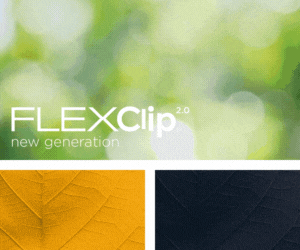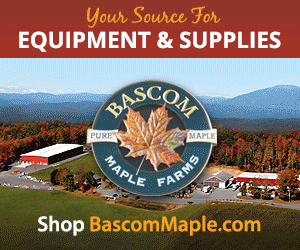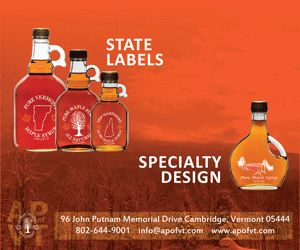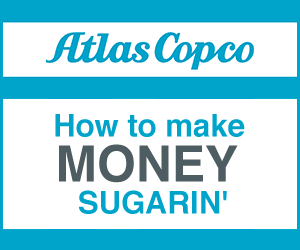Headlines
‘Tree Water’ company looking for permeate suppliers
Asarasi seeking more sugarmakers for permeate contracts
By DEBORAH JEANNE SERGEANT | OCTOBER 28, 2020
KATONAH, N.Y.—Asarasi Sparkling Tree Water is looking for more permeate.
The three-year-old water company has landed a deal with beverage giant Anheuser-Busch and is looking to add to its maple permeate supply base, said company founder Adam Lazar.
Asarasi has also collaborated with Goose Island Brewery producing the world's first 100% plant-based beer called Tree Water Pilsner with Anheuser Busch and the product sold out in under a week, Lazar said.
"This opportunity continues to lead to more significant volume sourcing and we are excited to bring this opportunity to all New York State Maple Producers," he said.
Asarasi said it is looking for permeate suppliers of 5,000+ gallons in any given maple season, Lazar said.
Interested producers can check out supplying opportunities at www.asarasi.com/permeate-supplier Password: PERMEATE
This year has been big for the New York-based company, including landing on the list of 20 finalists for the $3 million Grow-NY contest.
So far, Lazar has made 600,000 glass bottles of recovered “tree water” that both captures a waste by-product and creates a new revenue stream for producers.
“It is a natural resource,” Lazar said. “There’s a lot of people who understand that there are great products that come from plants, like aloe water, coconut water and now there’s maple water. Ours is a pure water that comes from a maple tree.”
Lazar is considering adding recyclable aluminum cans to his glass bottle containers for the sake of weight. It is much more costly to ship glass than aluminum. He is also considering a partnership with a company making an oat-based, 100-percent organic milk replacement beverage. Asarasi’s sustainability fits in well with the environmental ideals of this type of company.
“It becomes a great opportunity for farm partnerships and gives consumer everything they’re looking for,” Lazar said. “This could be put in pretty much anything with water as an ingredient.”
He wants to partner with any maple producer who can supply 5,000-plus gallons of maple permeate byproducts in each season.
Since there’s no maple flavor in the product, he doesn’t use “maple” on the label. The word would confuse consumers who would likely expect a maple flavored product.
Since it is a sustainable, ethical source of water, Lazar said that expanding to the nation’s entire maple region is completely reasonable goal.
He estimated that in the US maple business, about a billion gallons of sugar-free maple sap water is wasted—liquid that could be reclaimed as pure drinking water.
Asarasi sells the bottles of water from $1.49 to $1.99 apiece so that consumers feel the price is fair.
“A lot of niche products are too costly,” Lazar said. “The point is that our mission is to help these farms be better farms and help the terrestrial water supply. You can tap into this without harming the ecosystem because it’s being done already. When people are educated that water comes from trees, they get onboard.”
Asarasi Sparkling Tree Water is sold at about 750 stores in the US and in stores overseas.
When he talks with sugar makers, “It becomes a conversation around, ‘I can’t believe we haven’t used it before,’” Lazar said.
While his company literally sells water in glass bottles, the real “sell” is the idea of “the responsible consumption of natural resources,” Lazar said. “The marketing on a product tries to sell you on its story. I don’t make any of those claims because bottled water needs to hydrate. The product is the story.”
One of the challenges he faces is the fragmentation of the maple industry, with scores of small producers and few very large maple farms. But he has made good headway in connecting with more than 100 small- and medium-sized producers in New York to supply the “tree water” he needs.
He has also recently begun a collaboration with Goose Island Brewery producing a novel 100% plant-based beer, Tree Water Pilsner with Anheuser Busch. The product sold out in less than a week, a testament to the enthusiasm the public holds for sustainably sourced water. Lazar believes that the sustainability is what makes Asarasi stands out as a water supplier.
“They recognize water scarcity is a massive issue,” Lazar said. “In manufacturing around the planet, there’s 40% negative of available water versus demand by 2030. When you start to think of scarcity of water and we have a wonderful resource that’s not being managed, can we be the conduit for change.”
Winning these contracts is not only good for the planet and for Lazar’s business but it can also help Asarasi in the Grow-NY competition, which offers $3 in total prizes.
“Ultimately, these types of partnerships will help us be strong in the competition,” Lazar said. “We want to partner with every maple farm in the New York region.”
As one of 20 finalists, he hopes to win a top prize to help the company grow.
So far, Lazar has funded his company through crowdfunding and selling his house in Los Angeles and moving to NewYork. The company won a 43 North competition in 2016, which awarded him $500,000.
He doesn’t want to join with a venture capital organization, since he equates that with “selling our soul. The best way to fund our company is to apply to these types of programs.”
Asarasi contracts its administrative functions and bottling. He uses glass bottles from Corning Glass in Corning, New York and sources all his tree water from New York farms at present.
“We try to do everything locally we can,” Lazar said. “We have very deep New York roots and I try to relate everything in the company to New York.”















